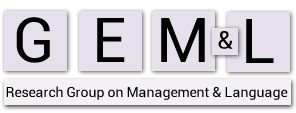Language as a source of otherness
Natalie Wilmot, Mary Vigier & Kristina Humonen
International Journal of Cross Cultural Management, 2023, Vol. 0(0) 1–22 DOI: 10.1177/14705958231216936
Abstract
Language is now firmly on the research agenda for international business and management. However, although attention is now being given to the effects of language on social interactions, rather than purely focusing on language as a matter of strategic priority, there is relatively little
known about how language contributes to Othering processes in which employees experience marginalisation and exclusion as a result of evaluations of their linguistic competences. This conceptual paper highlights a number of ways in which linguistic evaluations drive such processes,
and particularly draws on postcolonial perspectives in order to explore language as a tool of marginalisation and oppression. We demonstrate that language is closely tied to ideological constructions of the ideal worker, and highlight that English-language competence in particular, is
often positioned as an essential skill for managerial roles, which can lead to exclusion of those who do not confirm to this expectation. Additionally, we draw on research which explores language as a key component of social identity, and thus an important factor in the construction of in-groups and out-groups within the workplace, in order to demonstrate not only the influence of context on the salience of language as a marker of identity, but also how language intersects with other identity characteristics in processes of exclusion. We conclude by demonstrating the possibilities to resist
Othering in order to create more inclusive workplace environments.
